- Home
- Tracy Cooper-Posey
Suns Eclipsed Page 9
Suns Eclipsed Read online
Page 9
“I can take care of that,” Sang assured her.
“We should not turn all of the feeds off,” she added. “We could learn a lot from monitoring them.”
“Connie does monitor, as much as she can. She reports to me—although she doesn’t always understand what she’s watching, so something critical could be overlooked.”
“We can set up algorithms to monitor,” Bellona said. “Did Connie tell you about the man they call Chidi?”
“I remember Chidi from my time on Kachmar,” Sang said. “He is highly influential in Karassia.”
“I don’t know why,” Bellona said. “He doesn’t say anything significant, yet he is adored.”
“I believe he says what everyone wants to hear,” Sang said. “That is why they appreciate him. He confirms that their thoughts and opinions are valid.”
“He’s saying Xenia is real and I’m a fake,” Bellona said.
Sang grimaced. “Exactly what Karassians would prefer to believe. It lets them sleep peacefully.”
Bellona considered him, startled. “They think I’m lying?”
“They think,” Sang said slowly, “that you’re using Xenia’s fame and glory to further your own hidden agenda.”
“I’ve been perfectly frank.”
“Karassians are not used to frankness.”
She stared at Sang, flummoxed. “They don’t believe that Shavistran was wiped out? They really believe it was all faked?”
“It’s more comfortable to believe it didn’t happen,” Sang said. “If it did, then it raises questions. Why would Eriuman destroy a whole city and if they have that capability, when will they destroy Kachmar City, or their city? Better to pretend your claims are all lies.”
“They could go to Shavistran and see the melted ruins for themselves,” Bellona said.
“That would be too proactive an action to take over something they don’t believe is true.” Sang shook his head. “There is an inertia to a communal belief that is difficult to overcome. No matter what you say, they will spin it to fit with their beliefs.”
“If I say it enough, surely some of them will start to question what is the truth?”
“The problem is, you are Bellona, who looks only vaguely like their hero, Xenia.”
Bellona sat back. “What if I looked exactly like Xenia?”
Sang looked thoughtful. “That might jar them into asking questions,” he admitted. “Although the official Karassian reaction might be more…forceful.”
“Can you cover the source of the transmissions so the Karassian officials can’t find us?”
“Connie could. She is on a first name basis with a lot of Karassian inter-system satellites now.”
“Name basis? You’re speaking metaphorically?”
“No. Connie asked them to give themselves names, so she didn’t have to keep using serial numbers to talk to them.” Sang smiled.
“Good,” Bellona said. “Let’s overcome the Karassian common man’s inertia, Sang. A flood of footage from Xenia herself. A deluge—so much of it that Chidi and his cohorts are drowned out by the volume. Let’s give Karassians a choice and ask them to make up their minds for themselves.”
“I can do that, of course,” Sang said. “Khalil is good with communications networks—”
“No,” Bellona said sharply. “Just you, Sang. Connie, of course. I prefer to keep this in-family.”
Sang grew still. His gaze cut away from her.
“What is it, Sang? You disapprove of that?”
Sang cleared his throat. His odd pale eyes met hers again. “May I speak frankly?”
“Don’t you always?”
He shook his head. “Bluntness is rarely appreciated.”
She sighed. “Speak.”
Instead, Sang shifted on his feet.
“Sang…”
“I thought Khalil was family,” he said, as if he was forcing the sentence from his inner-most self.
Bellona’s heart squeezed. She could feel the thud of it in her temples, too. “You’re right, Sang. I don’t like your brand of frankness.”
Sang lifted a hand, as if defeated. “Has he not proved himself to you? ‘If there was a beating heart to the Bureau I would tear it out with my bare hands and give it to you.’ That is what he said.”
“He did say that,” Bellona said, as calmly as she could. The heat and the pounding in her veins sickened her.
“Then…” Sang trailed off helplessly.
“Words are not proof.”
“Why does love have to prove itself?”
Bellona sucked in a breath as something shifted and rolled in her gut. “That’s enough, Sang.”
He grew still. His gaze dropped to the floor. “I apologize,” he said stiffly. “I’ll go and start on the algorithms.”
“And the Xenia feed,” she reminded him.
He headed for the door, his back straight and stiff.
“Sang.”
Sang didn’t look back. It was a very human form of denial. Yet he did hesitate at the open door.
“He betrayed me once,” she reminded him.
“He had to.”
“Which means he might be forced to it again.”
Sang’s shoulders dropped. Silently, he stepped out and let the door close.
* * * * *
The front end of the cavernous landing deck, tucked behind the growing pile of cast-offs and curiosities, was where Zeni held her daily combat training sessions. She didn’t pad the floor or prepare the area in anyway, except to clear the trash.
Sang attended the early morning sessions, as did Khalil. When Khalil asked Sang to practice with him late in the afternoon, though, he agreed.
There were three Abilio people working their way through the cast-off pile. Everyone digging through the heap tended to sort as they went. There were separate and growing piles of related things—clothes, entertainment, comfort, grooming and more.
As Khalil and Sang put each other through mock fights and maneuvers, their audience grew. Sang was pleased to see Amilcare among them.
There was enough floor space that they could talk quietly without their audience listening in. Sang drew Khalil’s attention to the watchers.
“I should bust your butt for their edification?” Khalil asked, with a grin that flashed white teeth and made his eyes glitter, as he settled into a stance for the next flurry.
“As if you could,” Sang replied, preparing himself.
Khalil launched himself. It was a speedy attack. A heavy-handed one. Sang held him off using more strength than he usually needed and sent Khalil rolling along the floor.
Khalil jumped to his feet and came at Sang once more.
The flurry this time was longer.
Sang risked glancing at Khalil’s face as they grappled. There was a look in his eyes that Sang had not seen before.
He tripped Khalil and pushed him away, troubled.
Khalil staggered, regained his balance and faced him once more.
“Perhaps a punching bag might be more useful to you,” Sang suggested.
Khalil smiled, without mirth. “A punching bag doesn’t hit back.”
“You want to be beaten?” Sang launched himself at Khalil. The exchange was hard and fast. This time, Sang spun away, retreating.
Khalil breathed quickly. The smile had gone.
“I don’t want to hurt you,” Sang said.
Khalil shrugged. “I’m used to it.”
Sang lowered his hands, as he sorted out the odd notes in Khalil’s voice. “Not from me.”
Khalil leapt at him.
Sang was unprepared. He countered barely in time. Khalil hissed as Sang’s foot connected with his forearm and turned away, shaking it out. “Not from you, huh?” he said dryly.
Sang straightened from the ready position. “Perhaps I should find that bag for you. I cannot help you, here.”
“Stay and fight, damn you,” Khalil snapped. “Get ready.”
Sang hesitated. There were too
many warring emotions swirling about them for him to process without full attention. Human emotions were the most complex of concepts and he knew that this moment was full of conflicting ideas that involved him in some way he had yet to fathom.
Khalil swore. “Ready yourself.”
Sang shook his head. “I do not think you are in the right mood.”
Khalil came at him, ninety kilos and a hundred and ninety centimeters of fury. Even so, Sang could have held his ground. Instead, he let himself be overcome. He didn’t know why he had made the choice to fight with less than his usual strength and agility. Sometimes he acted before he had fully formed the logic that should generate the act. He had learned to call those moments instinctive. His instincts told him now to give way. To submit.
Khalil dropped him to the ground with an impact that made the deck floor shudder and slammed Sang’s breath from him. Khalil fell on him with both knees, winding him.
Sang didn’t have to pretend to be helpless. The lack of oxygen made him dizzy and he lay gasping in shallow sips, waiting for his diaphragm to start working properly again.
Khalil stared down at him. “We’re the same, you and I. You, she trusts.” He rolled away and sat with a knee to his chest, breathing hard, his gaze on the floor.
Sang couldn’t have spoken even if he wanted to. His mind, though, was chaotic with surprise at this sudden and unexpected insight.
He should have anticipated Khalil’s unhappiness. There was no excuse…except for the human one that when it came to matters of close personal interest, he was often blind.
When the first tendril of energy grew enough to give him movement, Sang rolled over and sat up. That was all he could manage for now. “You should not be jealous. Not of me. I am an android. A help-meet. That is all.”
Khalil looked at him, then away. “Is that why you write those endless histories of yours? Is that your punching bag?”
Sang swallowed. “Histories are always written by the victors. I am…anticipating.”
Khalil met his gaze once more. “I only want to help, just as you do.” He hammered at the floor. “I deserve this. Yet I hate it. I could help, Sang. My knowledge of the Bureau alone…” He sighed.
“I know. So does Bellona. Give her time. That is the only thing that will help, now.”
“I don’t think there is time enough to overcome this,” Khalil said bitterly. “Yet I can’t give up, either.”
Sang let out a heavy breath. “Nor can I.”
“At least you have a place here,” Khalil said. “You have a purpose.”
“Do I?” Sang asked, surprised.
Khalil’s smile was small. “Of course you do. Why wouldn’t you?”
“I am a generalist,” Sang said automatically. “Purpose was never given to me.”
“You’re not that household android anymore, Sang,” Khalil said gravely. “You’re your own man, purpose and all. Her cause is yours.”
Sang nodded as he saw the truth in that. “It could be yours, too,” he told Khalil. “It should be.”
“It would be, but for my history.” Khalil got to his feet, moving slowly. Their audience had disappeared now they had stopped moving. It left them alone on the floor. Khalil held out his hand toward Sang. “Up you get.”
Sang took his hand and let Khalil help lift him to his feet. He was breathing almost normally once more.
Khalil kept hold of his hand, welding him to the spot. He gaze met Sang’s. “I don’t know what may happen in the future, Sang.”
“No one does.”
“There are parts of her life where she won’t let me in.” Khalil’s gaze didn’t move. “You’re in, though.”
“Like you, there are parts I am not privy to and never will be,” Sang said, as evenly as he could. “Those are yours.”
“Yes.” Khalil’s grip tightened. “Between the two of us, Sang, we can be everything she needs.”
Finally, Sang understood the patterns of the currents around him. Khalil had seen it before he had. He had loved Bellona longer. Sang nodded. “We can,” he said softly.
Chapter Eight
Demosthenes, Alkeides System
The full complement of the Alyard barely dented the capacity of Demosthenes. The dining room they used was the smallest one apart from the captain’s private room. Yet it still seemed empty even when everyone was in it. As a consequence, at meal times, everyone tended to sit only at the two long tables closest to the servery outlets. After eating, the diners lingered, talking and laughing.
Bellona recognized the bonding as a useful morale booster and often stayed for a while herself, despite more important matters that weighed upon her. Even though the conversation was casual and relaxed, the subjects discussed were still vital ones; politics was the most popular. The range of expertise and knowledge across Demos was surprisingly vast and sometimes conversations veered off in unexpected directions. That was how it happened.
On that night, Bellona suspected everyone living in Demosthenes was at the tables. Thecla had overridden the controls on the printers, so they produced beverages that featured real alcohol. The conversations after dinner had a free-flowing, relaxed sound, although no one seemed to be overindulging.
Sang had been talking about the Xenia feeds he had been blasting across the Karassian systems. Bellona had spent a whole day as Xenia, providing sound bites and speeches, written by Khalil and Vang, who had supplied the psychology driving them. Sang had captured Xenia digitally and could now make his own footage using the digital images, faster than Bellona could record them live.
“Karassians are watching,” Sang said. “The audience is not the size of Chidi’s, yet it is growing.”
“Word of mouth will bring more,” Khalil said, his long fingers curled around a glass of clear liquid that he only sipped. “As long as you keep the feed going.”
Sang nodded. “I intend to. The more people who see it, the more they talk about it, the more the doubt will grow.”
“If the doubt reaches critical mass,” Vang said, “They’ll finish the work of convincing themselves for you.”
Hero tapped Sang’s shoulder, for she was sitting on the table behind the one where Bellona and the others were sitting. Hero was not the only one perched on the adjoining tables, joining in. “Sang, is it true that communications channels are just miniature wormholes?”
Bellona smiled. “Where did you hear that?”
“Aideen said it.” Hero shrugged. “I thought wormholes were lethal.”
“The one working wormhole anyone has ever built was lethal,” Fontana said. “It destroyed Pushyani.”
“That’s the moon where they built that generator, yes?” Retha said.
Hero nudged Sang again. “So, is it true? Channels are wormholes and no one has ever told anyone?”
Sang shook his head. “The knowledge isn’t secret. It just doesn’t get talked about widely because the Pushyan disaster makes most people nervous when wormholes are mentioned.”
“Then it’s true?” Bellona asked, as surprised as most of the expressions around the table told her everyone else was.
Sang frowned. “It’s not that simple—”
“Name one thing in life that is simple,” Fontana growled.
“Sex,” Hero said instantly.
Everyone groaned.
“Sex with you is not simple,” Vang replied. “Not if one values their genitals.”
“No, wait,” Bellona said. “I want to go back to the wormhole thing. Sang, really? Feeds are all wormholes?”
“The feeds are not wormholes,” Sang said. “They’re just normal audio-visual compilations. What they pass through to get from system to system and not lose cohesion are microscopic wormholes. Interstellar communications satellites are really bridge generators, that send and receive feeds from other systems, then broadcast them down to the planet they’re over.”
Thecla laughed. “If that is true, then why didn’t they use the same model for Pushyani? It would have worked,
then, instead of blowing up the whole damn moon.”
“They did use the same model,” Sang said.
Everyone stared at him.
Sang didn’t seem to be bothered by the attention. “Bridge forge technology has been known and understood for hundreds of years. The miniature forges used for communications channels were developed nearly two hundred years ago. Then someone decided that scaling up the forges to a dimension that could generate a ship-sized bridge would be useful. Funding was found to develop a generator on Pushyani.”
“Yikes,” someone breathed.
“Exactly,” Sang said in agreement. “Simple scaling presented problems that don’t exist at micro-sizes. Forges are impractical at ship-size. They’re far more massive than null-space generators. The strongest materials known to the free worlds collapse as soon as the hole is produced. They can’t cope with the strain. That’s what happened on Pushyani. The engineers used carbyne for the entire generator and it still wasn’t strong enough. The forces produced crushed the moon to gravel.”
“The bigger the bridge, the stronger the forge has to be,” Fontana said thoughtfully.
“It’s a geometric scale,” Sang said. “The smaller the hole, the more stable it is.
“I had no idea,” someone whispered. “It’s incredible!”
Bellona tended to agree. She shuddered. The idea that a bridge forge was being used even for something as benign as a microscopic communications feed was unsettling.
Fontana leaned forward. “Has anyone tried to make a man-sized forge?”
Sang’s eyes widened, as if he had been slapped.
Bellona sat up, as excitement gripped her. “Man sized…” she breathed. “Sang, is it possible?”
Sang blinked. “Theoretically, yes. In practice, though, there are all sorts of challenges. Electrical charges, structural strength…you’d have to find something stronger than carbyne, just to begin.”
“There is nothing stronger than carbyne,” Thecla said shortly, annoyed.
“You said it was a geometric scale of pressure,” Fontana said. “How intense would the pressure be if the generator was man-sized? Maybe carbyne would be enough.”

 The Unaccompanied Widow
The Unaccompanied Widow Ashes of Pride
Ashes of Pride Inside Man
Inside Man Kiss Across Seas
Kiss Across Seas Kiss Across Chaos
Kiss Across Chaos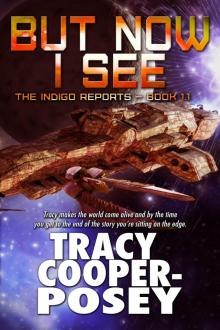 But Now I See
But Now I See Scandalous Scions Two
Scandalous Scions Two Her Rebellious Prince (Scandalous Family--The Victorians Book 2)
Her Rebellious Prince (Scandalous Family--The Victorians Book 2) Year of Folly
Year of Folly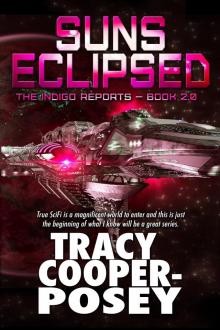 Suns Eclipsed
Suns Eclipsed Quiver and Crave
Quiver and Crave Mask of Nobility
Mask of Nobility The Second Trinity
The Second Trinity Kiss Across Tomorrow (Kiss Across Time Book 8)
Kiss Across Tomorrow (Kiss Across Time Book 8) Lost At Sea
Lost At Sea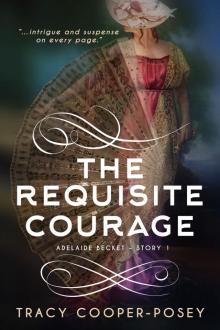 The Requisite Courage
The Requisite Courage Evangeliya
Evangeliya Risk of Ruin
Risk of Ruin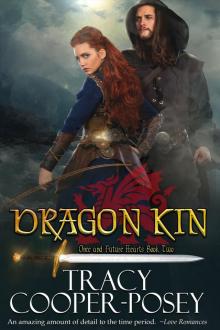 Dragon Kin
Dragon Kin War Duke of Britain
War Duke of Britain Scandalous Scions One
Scandalous Scions One Degree of Solitude
Degree of Solitude Kiss Across Worlds (Kiss Across Time Book 7)
Kiss Across Worlds (Kiss Across Time Book 7) Abduction of Guenivere (Once and Future Hearts Book 7)
Abduction of Guenivere (Once and Future Hearts Book 7) Junkyard Heroes
Junkyard Heroes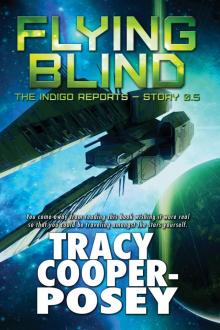 Flying Blind
Flying Blind Amor Meus
Amor Meus Heart Strike (Project Kobra Book 3)
Heart Strike (Project Kobra Book 3) High King of Britain
High King of Britain Arctic Ambush
Arctic Ambush Romani Armada (Beloved Bloody Time)
Romani Armada (Beloved Bloody Time) His Parisian Mistress (Scandalous Family--The Victorians Book 1)
His Parisian Mistress (Scandalous Family--The Victorians Book 1) Mask of Nobility (Scandalous Scions Book 4)
Mask of Nobility (Scandalous Scions Book 4)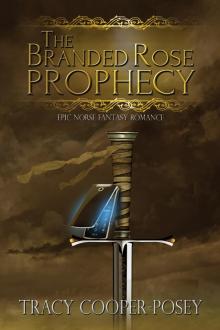 The Branded Rose Prophecy
The Branded Rose Prophecy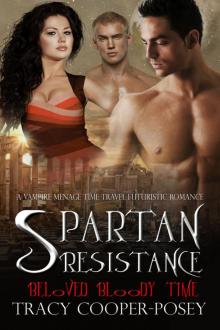 Spartan Resistance
Spartan Resistance Byzantine Heartbreak (Beloved Bloody Time)
Byzantine Heartbreak (Beloved Bloody Time) Rules of Engagement
Rules of Engagement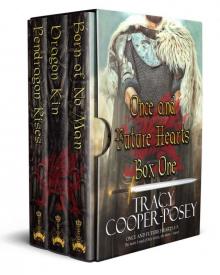 Once and Future Hearts Box One
Once and Future Hearts Box One Soul of Sin (Scandalous Scions Book 2)
Soul of Sin (Scandalous Scions Book 2) Time Kissed Moments 1
Time Kissed Moments 1 Blood Revealed
Blood Revealed Cat and Company
Cat and Company Byzantine Heartbreak
Byzantine Heartbreak Casualties of War
Casualties of War Carson's Night
Carson's Night Pendragon Rises
Pendragon Rises Terror Stash
Terror Stash Rose of Ebony
Rose of Ebony Zoe's Blockade (Destiny's Trinities Book 5)
Zoe's Blockade (Destiny's Trinities Book 5) Blood Ascendant (Blood Stone Book 5)
Blood Ascendant (Blood Stone Book 5) Law of Attraction
Law of Attraction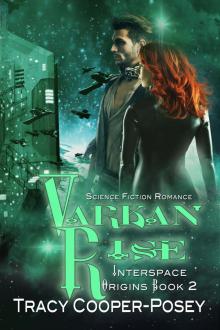 Varken Rise
Varken Rise Blood Unleashed (Blood Stone)
Blood Unleashed (Blood Stone) Prisoner of War
Prisoner of War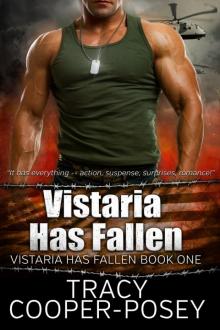 Vistaria Has Fallen
Vistaria Has Fallen Kiss Across Deserts
Kiss Across Deserts Terra's Victory (Destiny's Trinities Book 7)
Terra's Victory (Destiny's Trinities Book 7) Unbearable
Unbearable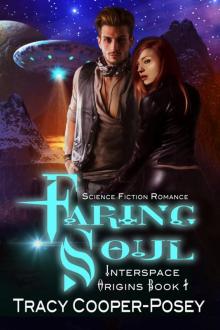 Faring Soul - Science Fiction Romance
Faring Soul - Science Fiction Romance Carson's Night (The Stonebrood Saga)
Carson's Night (The Stonebrood Saga) Mia's Return
Mia's Return Kiss Across Swords (Kiss Across Time Series)
Kiss Across Swords (Kiss Across Time Series) Bannockburn Binding (Beloved Bloody Time)
Bannockburn Binding (Beloved Bloody Time) Beauty's Beasts
Beauty's Beasts Beth's Acceptance
Beth's Acceptance Kiss Across Kingdoms
Kiss Across Kingdoms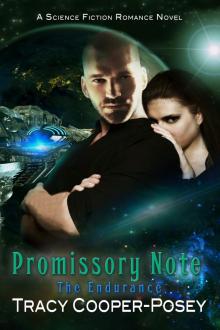 Promissory Note
Promissory Note Blue Knight
Blue Knight Blood Stone
Blood Stone Season of Denial (Scandalous Scions Book 7)
Season of Denial (Scandalous Scions Book 7) Kiss Across Chains (Kiss Across Time Series)
Kiss Across Chains (Kiss Across Time Series)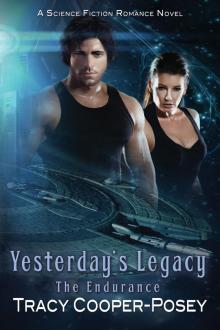 Yesterday's Legacy
Yesterday's Legacy Rose of Ebony (Scandalous Scions Book 1)
Rose of Ebony (Scandalous Scions Book 1) Valor of Love (Scandalous Scions Book 2)
Valor of Love (Scandalous Scions Book 2) Hostage Crisis
Hostage Crisis Fatal Wild Child
Fatal Wild Child Octavia's War
Octavia's War Beth's Acceptance (Destiny's Trinities)
Beth's Acceptance (Destiny's Trinities)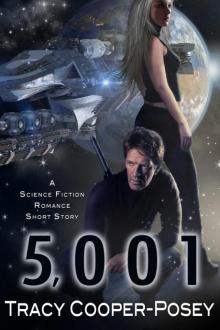 5,001 - A Science Fiction Romance Short Story
5,001 - A Science Fiction Romance Short Story Freedom Fighters
Freedom Fighters Time and Tyra Again
Time and Tyra Again Harvest of Holidays
Harvest of Holidays Kiss Across Chains
Kiss Across Chains Sabrina's Clan
Sabrina's Clan Red Leopard (The Vistaria Affair Series)
Red Leopard (The Vistaria Affair Series)